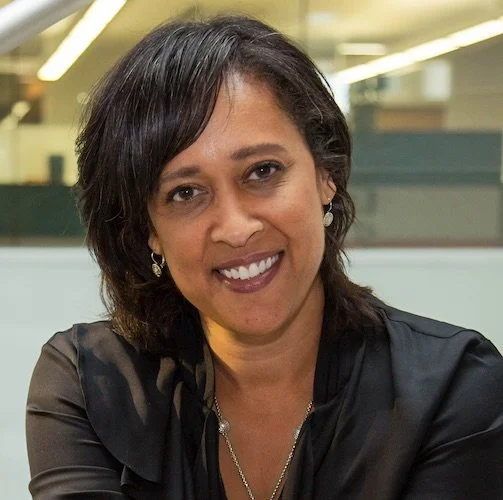Wendy Ellis, PhD
Project Director, Building Community Resilience
Sumner M. Redstone Global Center for Prevention and Wellness
Wendy Ellis is the Director of the Building Community Resilience Collaborative and Networks at the Milken Institute School of Public Health at George Washington University. The Building Community Resilience (BCR) collaborative and networks are testing and implementing a process based on Ms. Ellis’ research in designing a strategic approach for multiple systems to align resources, programs and initiatives with community based partners to address adverse childhood experiences and adverse community environments-- or as Ellis has coined it "The Pair of ACEs". The strengths based approach is aimed at building the infrastructure to promote resilience in vulnerable communities by improving access to supports and buffers that help individuals 'bounce back' and communities thrive. The BCR process is being tested in five regional metropolitan areas based out of Cincinnati, OH; Dallas, TX; Portland, OR; Washington, DC St. Louis and Kansas City, MO. and is supported in part by the Doris Duke Charitable Foundation and The Kresge Foundation. Dr. Ellis co-authored an article detailing the BCR process, "A New Framework for Addressing Adverse Childhood and Community Experiences: The Building Community Resilience Model" which can be found in the September 2017 Journal of Academic Pediatrics. In March 2019, she successfully defended dissertation research titled "Community Resilience: A Dynamic Model for Public Health" which applies dynamic systems modeling to governmental public health department efforts aimed at addressing ACEs and building community resilience. The Community Resilience model is designed to be used as a Public Health 3.0 strategy for the Chief Health Strategist working across sectors to drive initiatives that address inequities that are at the heart of the nation's health disparities. As with the BCR process, Dr. Ellis is forming a cohort of local public health departments to test the Community Resilience model in the coming year.
Ms. Ellis has spent the last decade developing and working to grow a 'resilience movement' to address systemic inequities that contribute to social and health disparities that are often transmitted in families and communities from generation to generation. In 2018 Ms. Ellis was selected as an Aspen Institute Ascend Fellow. According to the Aspen Institute "Ascend Fellows are visionary, entrepreneurial leaders with bold ideas than can move the needle on health and wellbeing and offer concrete economic and social mobility pathways for children and their families. The Fellowship provides leaders the space and support to bring their ideas to life and scale." Ellis plans to use this fellowship to focus on developing strategies to for long term sustainability of BCR programs, practice and policy change.
In 2017, Ms. Ellis was selected as for the Doris Duke Fellowship for the Promotion of Child Well-Being— which seeks to support emerging scholars focused on innovations to prevent child abuse and neglect. The fellowships are designed to develop a new generation of leaders capable of creating practice and policy initiatives that will enhance child development and improve the nation's ability to prevent all forms of child maltreatment. She is also a Milken Scholar at the Milken Institute School of Public Health at George Washington University where she earned a DrPH in Health Policy. Ms. Ellis holds an MPH from the University of Washington’s School of Public Health and a BS from Seattle University. At the University of Washington she led a study investigating factors associated with disparities in access to mental health care among children in Washington State which was published in Health Affairs.
Prior to joining George Washington University she served as Manager of Child Health Policy in Nemours’ National Office of Child Health Policy and Practice in Washington, D.C. In this role, she led policy research and development efforts in the area of population health, prevention, child behavioral health, toxic stress, and adverse childhood experiences. Ms. Ellis also managed policy and communications for the Kresge-funded Moving Health Care Upstream initiative.
Previously, she served as Manager of Health Services Research and Health Policy at CSR, Incorporated, a research and technical services firm in Arlington, VA. At CSR, Wendy led research and policy analysis projects on an array of health services topics including: patient-centered medical homes, access to care issues for children and families, reducing health disparities, child mental health, health promotion and program evaluation for the Centers for Disease Control, the National Association of County and City Health Organizations, the Substance Abuse and Mental Health Administration and others.
Ellis' current mission is informed from her previous career as a television journalist covering stories highlighting the failures of multiple systems-- from juvenile justice to child services to health care-- fail the very children and families they were meant to serve. As a result of this experience and years of independent research, she developed the 'BCR process" by which communities and the systems that touch children and families-- from education to pediatric health to juvenile justice-- collaborate and align to provide the buffers that enable children and families to thrive.
Ellis has consulted on the Rockefeller 100 Resilient Cities initiative in Dallas and Washington, DC, organized and moderated Congressional briefings, and has been widely quoted on topics related to childhood trauma and community resilience in national media outlets.


